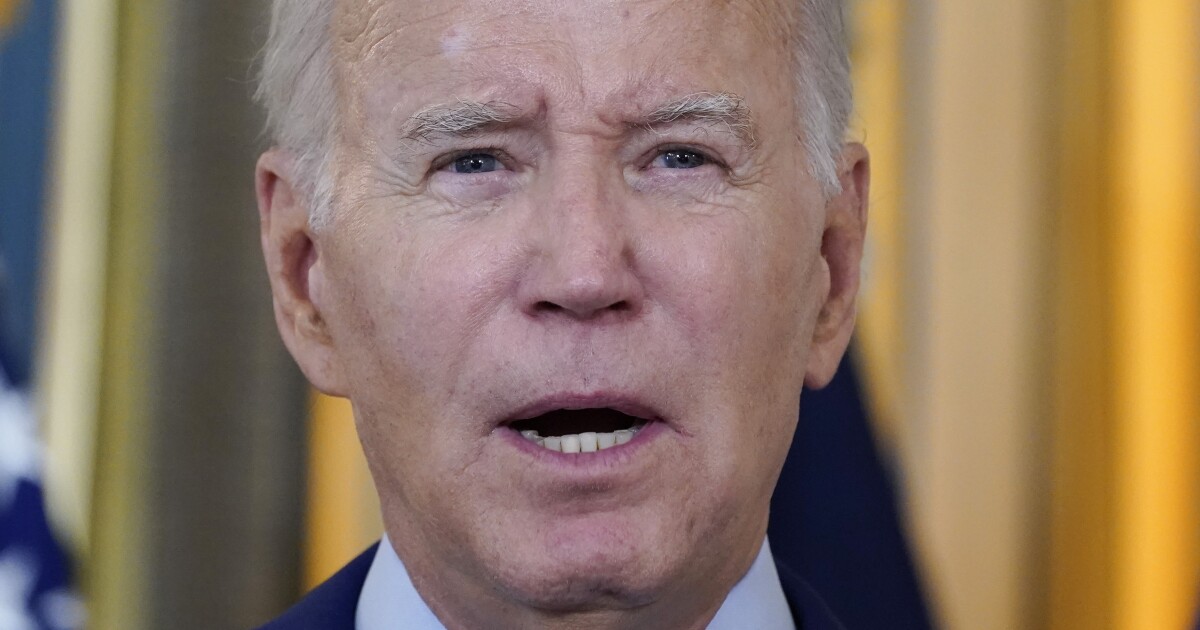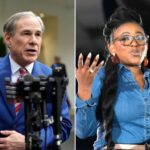

President Joe Biden’s ambitious clean energy and climate targets have put him at odds with organized labor groups, who argue his push for electric vehicles could come at the expense of fair wages and union jobs, threatening support from a bloc seen as key to helping his reelection chances in 2024.
Biden, who once described himself as the most “pro-union” president, has struggled to balance his goals on electric vehicles and clean energy without also alienating longtime allies in auto and manufacturing unions.
CLARENCE THOMAS’S 2022 FINANCIAL DISCLOSURE RELEASED AFTER MONTHS OF ‘ETHICS’ PRESSURE
In recent weeks, they have threatened to strike if companies do not meet their lists of ambitious demands. And late Thursday, the United Auto Workers (UAW) union filed unfair labor practice charges against the Big Three Detroit automakers — Ford, General Motors, and Stellantis — saying they have “refused to bargain in good faith.”
For Biden, the clock is ticking to lock down endorsements from the United Auto Workers and the Teamsters in the 2024 presidential race.
Both are major unions that represent workers in the automotive, manufacturing, package delivery industries, among others, and whose souring on Biden’s elections could threaten his chances of reelection in 2024.
BIDEN OVERTURES
The Biden administration launched a flurry of new efforts this week fulfilling union desires, including a proposed rule to raise wages for clean energy workers, help automakers upgrade their facilities to produce electric vehicles and EV parts, and encourage more product labor agreements on renewable energy projects.
On Thursday, the Energy Department announced $15 billion in funds to help support the transition to electric vehicles, including helping automakers and parts suppliers retrofit existing vehicle facilities to produce electric vehicle components and batteries.
The funds will also be focused on projects in long-standing automaker communities, Energy Secretary Jennifer Granholm said. “While we transition to EVs, we want to ensure that workers can transition in place, that there is no worker, no community left behind,” she told reporters.
In response, UAW President Shawn Fain said the UAW “supports and is ready for the transition to a clean auto industry.”
“But the EV transition must be a just transition that ensures auto workers have a place in the new economy,” he added.
Earlier this week, the Treasury Department issued a new proposed rule that would allow clean energy companies that adhere to prevailing wage requirements to qualify for up to five times the value of tax credits under the Inflation Reduction Act, an effort intended to give a shot in the arm to companies who pay higher wages and to encourage IRA project developers to use more project labor agreements, which often involve strong union worker protections.
Another first-of-its-kind report from Treasury extolled the benefits of unionization, finding that unions raise the wages of their members by 10% to 15% and improve benefits.
“Union organizing and collective bargaining has made it possible for so many working families to buy a home, build a future, and retire with dignity,” Vice President Kamala Harris said.
But some labor groups are growing frustrated with Biden, who they see as failing to back them in critical negotiations ahead of contract expiration dates.
Others fear this lack of intervention could create room for Republicans to swoop in and make a play for their support.
Ahead of the 2024 presidential election, this divide is “a very interesting wedge issue for Republicans to try and exploit,” Gary Clyde Hufbauer, a nonresident senior fellow at the Peterson Institute for International Economics, told the Washington Examiner.
UNION FRUSTRATIONS
Unions are seeking higher pay and job protection for workers as the administration boosts electric vehicles.
Electric vehicle plants require fewer workers than ICE manufacturing facilities and are largely non-unionized. Fain blasted the Biden administration’s plan to lend $9.2 billion to two U.S. battery projects in Kentucky and Tennessee, both right-to-work states, calling the loan a massive “giveaway” with “no consideration for wages, working conditions, union rights or retirement security” that would help create low-paying jobs.
“Why is Joe Biden’s administration facilitating this corporate greed with taxpayer money?” he said in a statement.
Those conditions are at the fore as UAW continues negotiations with Big Three automakers in Detroit, with a deadline for a deal of Sept. 14 imposed by the UAW under the threat of a strike. Among their demands are wage hikes of 46%, ending a tiered wage system, and securing certain commitments for electric plant workers.
Currently, they are at an impasse, and UAW has said its members overwhelmingly voted to strike rather than extend the contract if they do not reach an agreement.
A Big Three strike would be the biggest auto strike since 2019 when more than 48,000 UAW workers set up picket lines at GM.
It would also be incredibly costly: A recent study from the Anderson Economic Group found that even a 10-day strike by UAW members at Big Three automakers could result in a total economic loss of more than $5 billion.
Fain, for his part, was unmoved. “We’re fed up,” he said this week. “We’ve sat back for decades while these companies continue to just take and take and take from us.”
Meanwhile, the Teamsters union narrowly averted a strike in late July. After a period of tense negotiations, and with the contract deadline looming, the Teamsters union and UPS reached an agreement on a contract package that boosted wages and granted nearly all of the union’s requests, including raising labor costs for its members by more than 3% per year.
Teamsters President Sean O’Brien called it “the best contract in the history of UPS.”
A strike would also be politically damaging to Biden, both because it would inflict major pain on both union workers and the automakers and would add inflation due to shortages and higher prices in the run-up to 2024.
For Biden, “inflation is a already big bugaboo that he faces going forward to the next election,” and something that a strike could exacerbate, Hufbauer said.
LEADERSHIP CHANGES
Fain cuts a sharp contrast with his predecessor, Ray Curry, who was much closer to the Biden administration. Unlike Curry, Fain is something of an insurgent leader whose ascent surprised many, and he has already gained a reputation for his aggressive leadership style and willingness to go for the jugular.
Fain has taken to addressing the public directly in Facebook Live videos, including one where he threw a contract proposal from Stellantis into a trash can to show his displeasure.
O’Brien is a fourth-generation union member who started off as a driver for a crane-rental company. His social media bio reads: “Fighting for workers is a full-contact sport.”
That’s a change in leadership that could threaten Biden’s relationship with the labor groups.
LOOKING AHEAD
In the meantime, Republican presidential candidates see the growing divide as an area ripe for exploitation ahead of 2024.
For Republicans, there’s an “opportunity to play it very cleverly,” Hufbauer said. “They can, in a general way—and without promising to compel unionization—can talk about how much more sympathetic they are to working people, and so on.”
Former President Donald Trump is already vying for an endorsement from the United Auto Workers. In a new campaign video this week, he took aim at Biden’s electric vehicle goals, including its proposed fuel economy standards and tailpipe emissions rule, as a “transition to hell,” and one that he said would destroy the U.S. auto industry.
“What’s happening to our auto workers is an absolute disgrace and an outrage beyond belief,” he said.
“All those cars are going to be made in China,” Trump said of Biden’s electric vehicle push. “Every one of them. You can forget it, Michigan. You can forget it, South Carolina. You can forget it, everybody. All of those cars are going to be made in China.”
CLICK HERE TO READ MORE FROM THE WASHINGTON EXAMINER
He did not mention the sourcing and “Made in America” manufacturing requirements included in the Inflation Reduction Act, which are aimed at the goal of reshoring electric vehicle and battery production.
“That’s very much a card that Trump has played in the past, and there’s no reason why he can’t play it this time around,” said Hufbauer, who noted other Republican candidates could easily follow suit.




